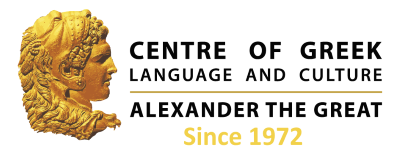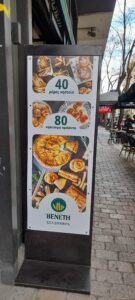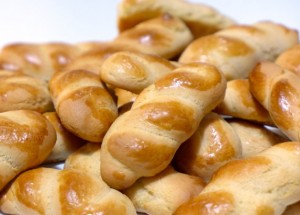
Easter (Πάσχα =Pascha) in Greek, is the most important religious holiday of the Orthodox Church marking the resurrection of Christ and the chance of rebirth for mankind. On Maundy Thursday the Service of the Holy Passion is held; the preparations for the celebration of the Resurrection also start on that day. Housewives traditionally prepare the Easter brioche (τσουρέκι =tsoureki) and dye eggs (βαμμένα αυγά= vamena avga) with special red dyes, a custom that symbolises the rebirth of life and nature. On Good Friday (Μεγάλη Παρασκευή =Megali Paraskevi), the sacred day of the culmination of the Passion of Christ with the Deposition from the cross and Christ’s burial, people decorate the Epitaph (Επιτάφιος =Epitafios), as the tradition wants the Crown of Thorns of Jesus Christ to be covered with flowers. On this day of bereavement, the devout Christians are supposed not to eat anything. The Epitaph Mass takes place in the evening and then follows the circumambulation; people join the procession on its way through the streets of every single village and city listening to chanters reciting the funeral psalms in a mystic atmosphere of devout concentration. When the clock strikes 12 on Easter Saturday (Μεγάλο Σάββατο= Megalo Savato), people tell each other Christ is risen! (Χριστός Ανέστη =Christos Anesti) and He is truly risen! (Αληθώς Ανέστη =Alithos Anesti!) as a response, while they bring back home their lit candles to bless their house and symbolize the Light’s return to the world. After enjoying the magiritsa (μαγειρίτσα) a lamb soup, the challenge of the red eggs awaits everyone. The breaking of the eggs symbolizes Christ breaking the Tomb and defeating Death. On Easter Sunday (Κυριακή του Πάσχα = Kiriaki tou Pascha) morning, as the 40-day period of fasting finally comes to an end, in many parts of the country lamb is prepared on the spit. In other regions, the meat for the Easter table – lamb (αρνί =arni) is roasted in the oven. The atmosphere is festive- full of joy and excitement! The Easter tables are set (το πασχαλινό τραπέζι είναι έτοιμο = to paschalino trapezi ine etimo) and people merrily rejoice, eat and drink with their family until late at night.




